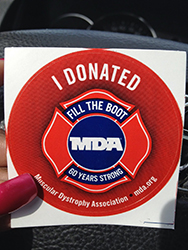The answer is Yes! Do both - Give and Save!
And remember the words of the Lord Jesus, how He said, ‘It is more blessed to give than to receive’.
Acts 20:35 KJV
There is treasure to be desired and oil in the dwelling of the wise; but a foolish man spendeth it up.
Proverbs 21:20 KJV
You are reading this correctly. Giving and saving is a single best step that we should take in preparation for expanding our financial territory. This is not an oxymoron - as the biblical scriptures show, we are expected to give and save.

The principle to be gleaned here is that we should purposely take resources that we could use to sustain ourselves and make a conscious effort to give to the building of God’s kingdom, give to the poor and give to take care of family while also setting aside a portion in our house for later. This is stewardship sacrifice.
Here's Christian biblical scripture that reference these financial practices.
 Giving to the building of God's kingdom...
Giving to the building of God's kingdom...
"Bring all the tithes into the storehouse,
That there may be food in My house,
And try Me now in this,”
Says the Lord of hosts,
“If I will not open for you the windows of heaven
And pour out for you such blessing
That there will not be room enough to receive it."
Malachi 3:10 NKJV
Giving to the poor...
Is it not to share your bread with the hungry,
And that you bring to your house the poor who are cast out;
When you see the naked, that you cover him,
And not hide yourself from your own flesh?
Then your light shall break forth like the morning,
Your healing shall spring forth speedily,
And your righteousness shall go before you;
The glory of the Lord shall be your rear guard.
Then you shall call, and the Lord will answer;
You shall cry, and He will say, ‘Here I am.’
Isaiah 58:7-9 NKJV
Taking care of your family...
But if anyone does not provide for his own, and especially for those of his household, he has denied the faith and is worse than an unbeliever.
1 Timothy 5:8 NKJV
There is wisdom in saving...

There is treasure to be desired and oil in the dwelling of the wise; but a foolish man spendeth it up.
Proverbs 21:20 KJV
We’re pleasing to the Lord when we put His financial principles into action.
How do you do this? Here’s three practical starting points:

- Tithe (giving 10% of your increase) and give offerings to building of God’s Kingdom
- Give to the poor through an avenue that touches your heart. This can be though a charity or by helping someone on the street. God knows your heart and counts every act of giving even if the IRS does not.
- Save a portion of your increase each month. Save for those unplanned expenses that we know will surface. There’s no such thing as saving too little unless you’re not saving at all! Include this in your spending plan so that you can track it and hold yourself accountable.
Principles for managing financial resources in the Christian Holy Bible are designed for our best interests today, tomorrow and in eternity. I'm asking you, are you giving and saving?
I am!!

Carolyn